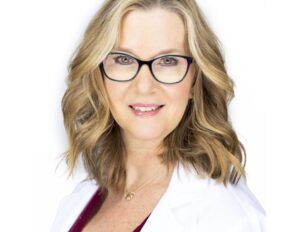The 411 on the over-the-counter birth control pill

On May 9, a U.S. Food and Drug Administration (FDA) panel of advisory regulators voted unanimously to approve the first nonprescription birth control pill in the United States.
The contraceptive pill, Opill,”¯has been available for the past 50 years here but only by prescription. (More than 100 other countries offer over-the-counter birth control pills.) If the FDA approves this use over the summer, as expected, this nonprescription birth control could be in pharmacies by the end of the year.
While that outcome could expand accessible, individual contraception nationwide, it would do so amid continuing political and cultural tensions over reproductive care in a post-Roe landscape. Along with the sociocultural challenges of over-the-counter birth control, there are the medical risks that all birth control pills carry ”“ although the FDA panel concluded that the benefits far outweigh those risks and that users would act responsibly.

Unlike most prescribed birth control pills, which contain estrogen, Opill is a progestin-only pill, made of synthetic progesterone. It must be taken at the same time daily.
In the past, the FDA had expressed reservations about the quality of drugmaker HRA Pharma”™s studies of Opill, which first came on the market in 1973. Still, bbc.com quoted panel chair Maria Coyle, an Ohio State University pharmacist as saying, ““In the balance between benefit and risk, we’d have a hard time justifying not taking this action. The drug is incredibly effective, and I think it will be effective in the over-the-counter realm just as it is in the prescription realm.”
To help us understand the further implications of the FDA”™s decision, we”™ve turned to Molly McBride, M.D., a board-certified gynecologist at Elite Gynecology, where she handles the health needs of female patients ages 16 to 80, from birth control counseling to hormone replacement therapy, taking a holistic approach.
In her practice, McBride uses state-of-the-art, in-office imaging and testing with on-site ultrasound, blood and urine evaluation so that most patients get their results the same day. McBride holds an M.D. from Drexel University College of Medicine in Philadelphia and completed her residency in obstetrics and gynecology at the University of Pennsylvania”™s Perelman School of Medicine. In April, she founded Slán, a practice revolving around healthy aging, including menopause management, metabolic health and libido support, some of her specialties.
She is licensed to practice in New York and Delaware, two of the 25 states, including Connecticut, that along with the District of Columbia allow pharmacists to provide contraceptive care:
Dr. McBride, is the initial FDA approval of an over-the-counter birth control pill a game-changer?
“The approval of an over-the-counter birth control pill has the potential to be a game-changer as it could have a significant impact for both the health-care industry and women’s reproductive health. This increased accessibility could lead to fewer unintended pregnancies and improved reproductive health outcomes for women. “
What are the other benefits of an over-the-counter birth control pill?
“The benefits include increased convenience, reduced costs and greater accessibility, particularly for those who may not have health insurance or live in areas with limited access to health care.”
What are the risks, and are those risks different from prescription birth control pills?
“The risks associated with over-the-counter birth control pills are similar to those of prescription birth control pills, including an increased risk of blood clots, stroke and heart attack. However, the risk of these complications is still very low, and the benefits of birth control pills generally outweigh the risks. Nonetheless, it”™s still important to speak with your health-care provider before starting birth control to go over any potential side effects.”
Some critics argue that all birth control pills carry risks and that couples should use condoms, with the responsibility for birth control shifted to men. Your response?
“While all birth control methods carry some risks, including condoms, birth control pills are a highly effective form of contraception when used correctly. It”™s important for individuals to have access to a range of birth control options so that they can choose the method that works best for them.”
What would be your advice to young women who are about to begin their sexual lives?
“My advice to young women would be to educate themselves about the different types of birth control available and to choose a method that works best for them. It”™s also important to practice safe sex by using condoms to prevent sexually transmitted infections and to communicate openly with partners about sexual health and boundaries.”
For more, click here https://www.elitegyn.com/.